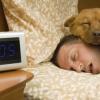Yeah but what about propylhexedrine, levomethamphetamine (which has many names, see Wiki), pseudoephedrine? Those 3 are clear TAAR1 agonists as well.
None of them available over the counter here.
How the brain decides between effort and reward https://www.scienced...60928150237.htm
http://www.jneurosci...ent/36/39/10002
The team found a relevant pattern of activity in three areas of the brain, the supplementary motor area (SMA), dorsal anterior cingulate cortex (dACC) and putamen. Further analysis showed that assessment of effort was centred on the SMA and putamen, with a separate network in the ventromedial prefrontal cortex assessing reward.
The dACC encoded the difference between effort and reward as a single value, likely drawing together the results of the two separate neural circuits, and activity in this area was linked with the degree to which each volunteer's choices were driven by the overall value.
What can I take from those studies.
Simply referenced a recent study that might help.
apparently your problem with lack of motivation isn't related to Dopamine pathway, as you described your cognitive strain about choosing between Reward and Effort, I guess your problem mostly arise from dACC area which has several Acetylcholine receptors.
High levels of acetylcholine are known to have side effects of decreased motivation, fatigue and other depression-like symptoms.
you might feel better by decreasing your Acetylcholine levels.
Edited by psychejunkie, 02 October 2016 - 04:34 AM.
















































